Junkyard Gem: 1983 Chrysler LeBaron Mark Cross Town & Country Convertible

When Lee Iacocca took the helm at the Chrysler Corporation in 1978, the company appeared to be doomed. The company’s only modern front-wheel-drive cars either came from Japan or had been developed from Chrysler Europe’s Simca operation, inflation was raging, and Middle Eastern conflict a year later sent fuel prices skyrocketing for the second time in the decade. Iacocca secured government loans to keep the company afloat until vehicles based on a brand-new front-drive platform could reach showrooms. Those were the K-Cars, debuting in the 1981 model year, and they saved Chrysler. The LeBaron was the ritziest of the early Ks, and today’s Junkyard Gem is an example of the most prestigious LeBaron of 1983, found in a Colorado car graveyard last summer.
The cheapest possible 1983 K-Cars were the two-door Plymouth Reliant and Dodge Aries, priced at $6,577 (about $19,959 in 2023 dollars). The 1983 LeBaron Mark Cross Town & Country convertible had an MSRP of way more than twice as much: $15,595, which comes to around $47,327 today.
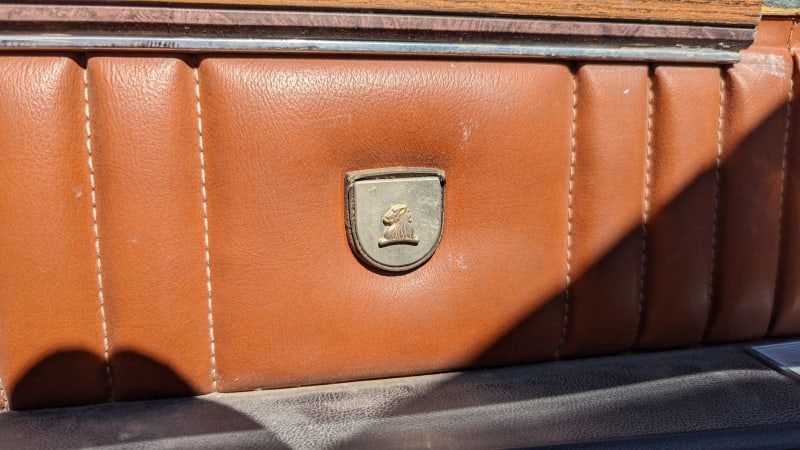
The LeBaron name came from a coachbuilder that Chrysler eventually devoured, and it was applied to the most glamorous Imperial models for decades. The LeBaron didn’t become a model name in its own right until the 1977 model year, when a thick coat of bling was slathered onto the midsize Dodge Diplomat. That generation of Chrysler LeBaron stayed in production through the 1981 model year.
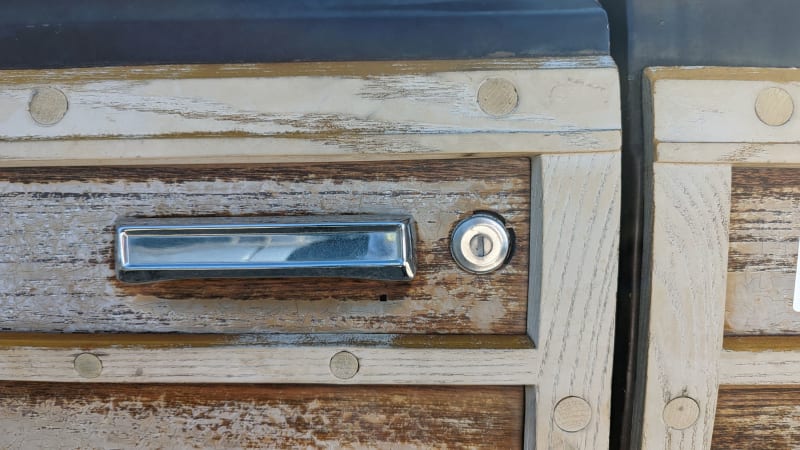
The Town & Country name goes way back in Chrysler history, too. The very first Town & Country was a woodie wagon—with real wood— that first appeared as a 1941 model. Over the decades that followed, the T&C name was applied to sedans, coupes, wagons and convertibles, some with wood (or “wood”) trim and some without, with only wagons getting that designation from 1969 through 1982. Beginning in 1990, the Chrysler Town & Country name went on minivans, and that’s where it remained through 2016.
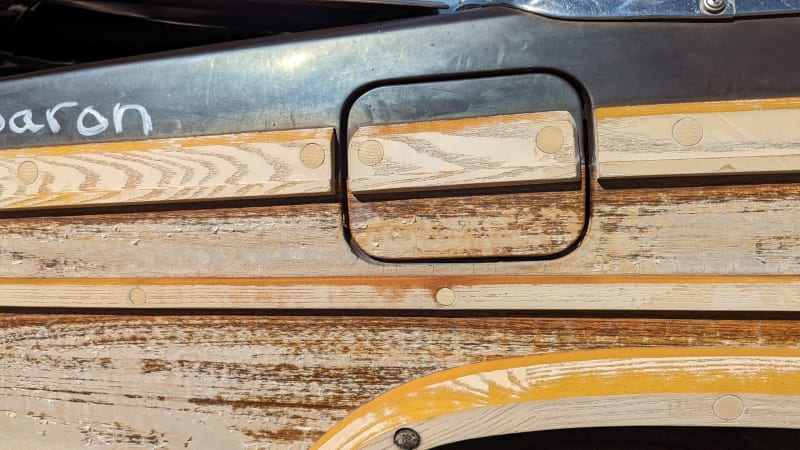
The paneling on this car is plastic, but it was more convincing (when new) than most of the fake wood found on Detroit cars of the era.
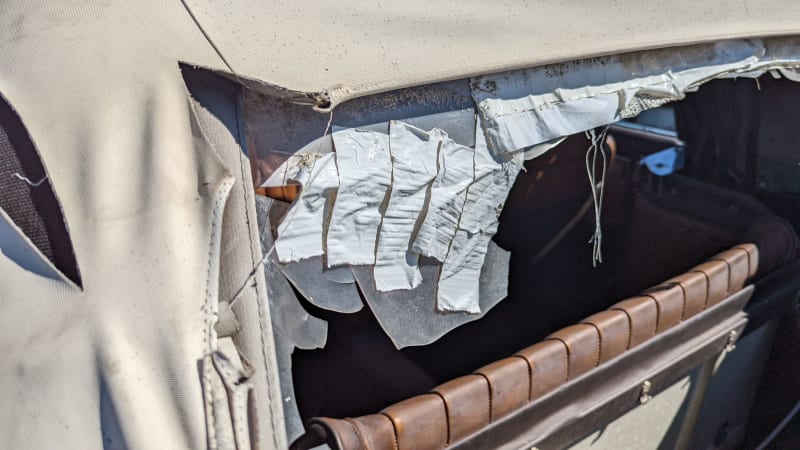
Convertibles made a big comeback for American car companies during the early 1980s, after much wailing and gnashing of teeth over “the last convertible” 1976 Cadillac Eldorado (it wasn’t the last convertible you could buy new here, even at the time). The LeBaron convertible went on sale for the 1982 model year, and new drop-top LeBarons remained available all the way through 1995. Lee Iacocca himself drove an ’86 LeBaron Town & Country!
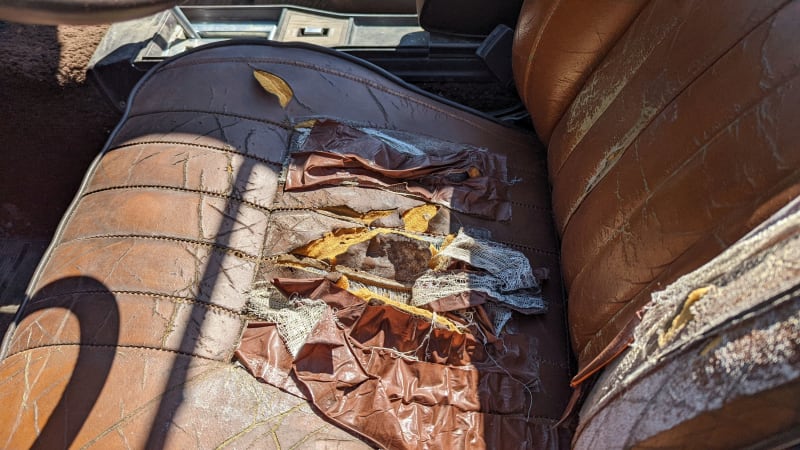
Chrysler offered Mark Cross leather in many of its cars throughout the 1980s and into the 1990s. The once-glorious two-tone hides in this car have been thoroughly ravaged by the High Plains sun by now.
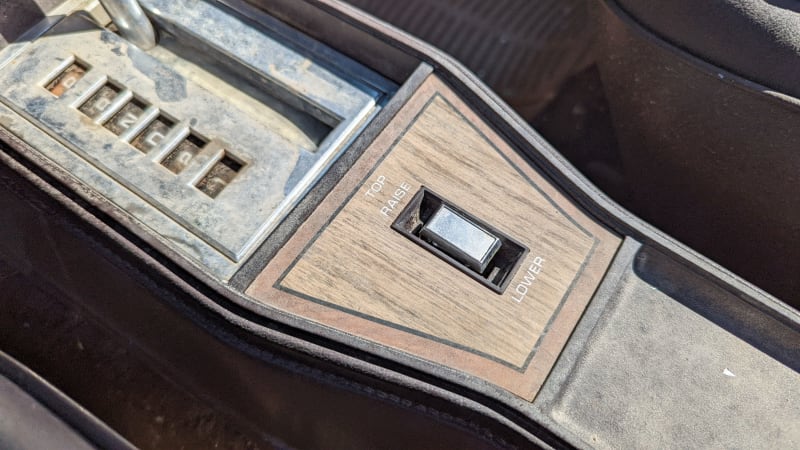
The interior “wood” is less convincing than the exterior “wood.”
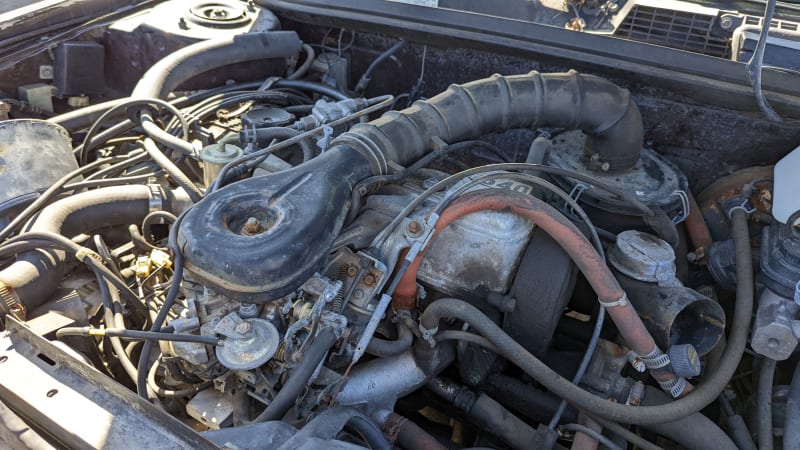
The base engine in the ordinary 1983 LeBaron was Chrysler 2.2-liter straight-four rated at 94 horsepower and 117 pound-feet. If you got the Mark Cross package, however, your LeBaron got this 2.6-liter Mitsubishi Astron engine; it produced just 93 horses but offered a more useful 132 pound-feet. For a brief period, “HEMI 2.6” badges were applied to some early K-Cars with this engine (the Astron has hemispherical combustion chambers).
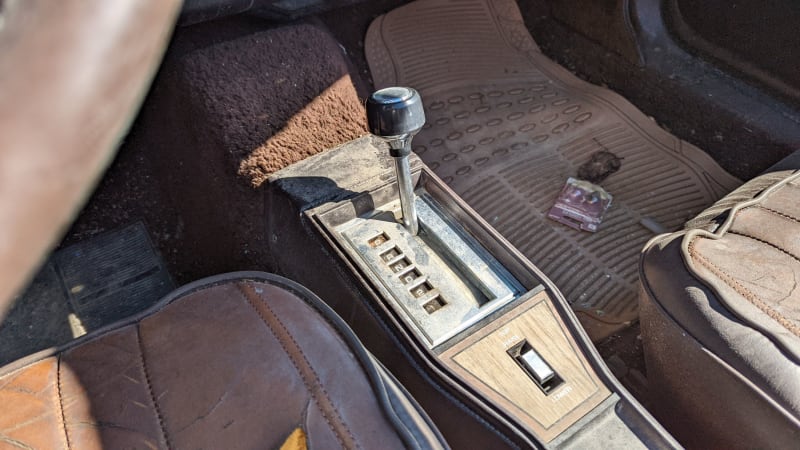
LeBarons with 2.6s had mandatory automatic transmissions in 1983.

Computer equipped!
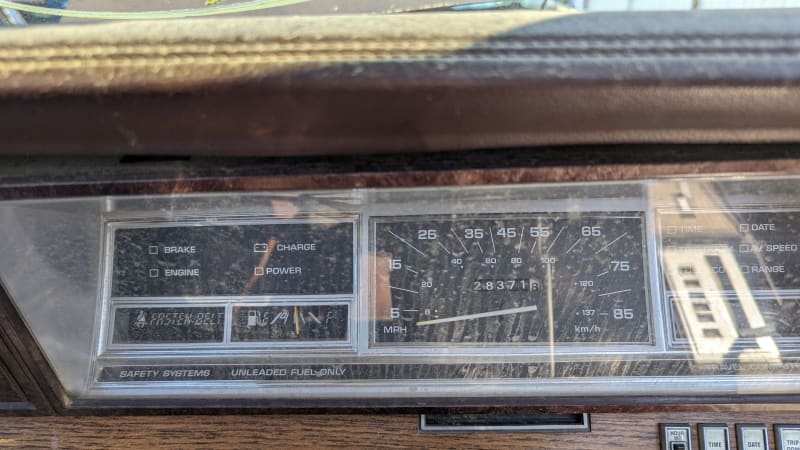
The odometer shows just under 30,000 miles, but I suspect it has been turned over at least once.
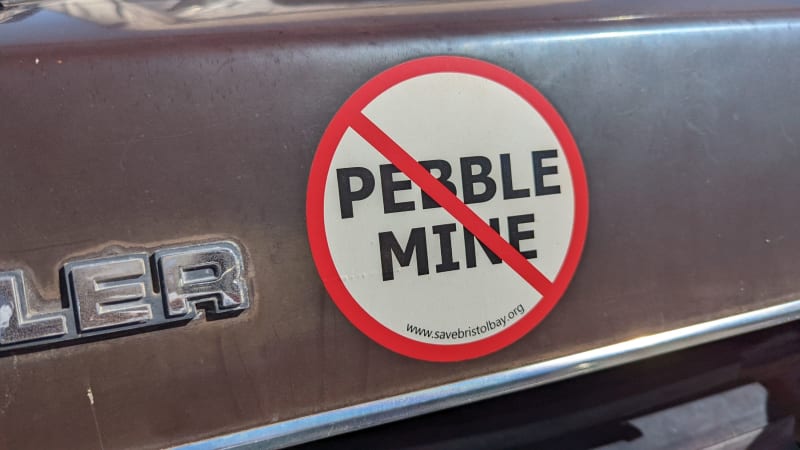
The anti-Pebble Mine sticker is of relatively recent vintage, so this car was being driven even after the Colorado climate had its way with the convertible top and interior.
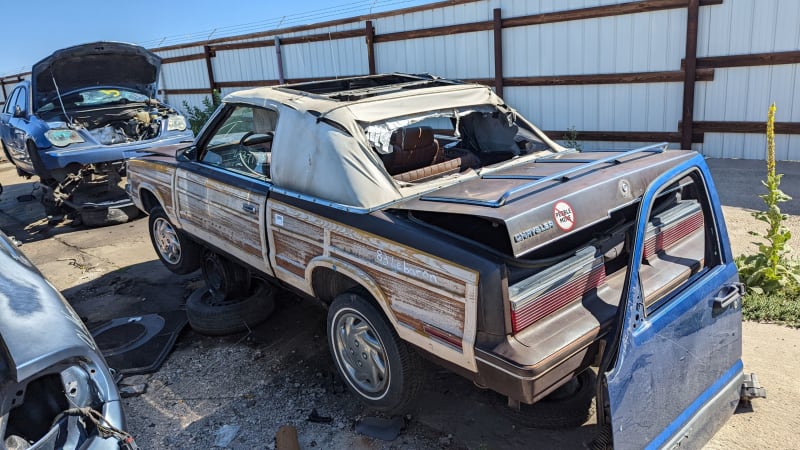
These cars were quite rare, though this is the second one I’ve found during my junkyard travels of the last decade or so.
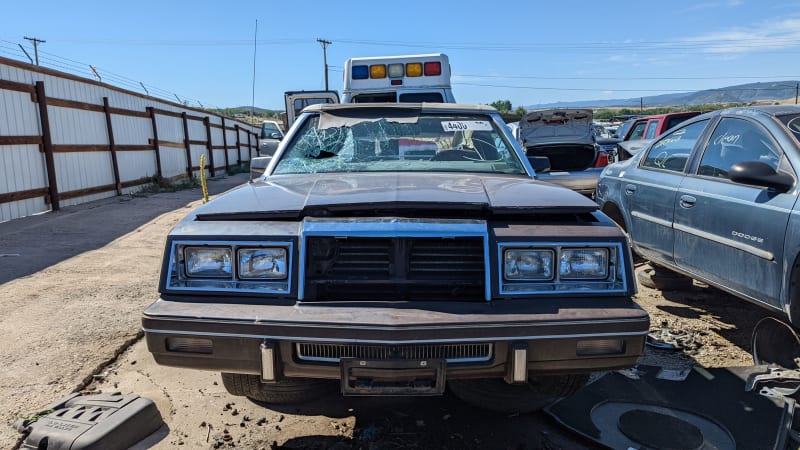
A very nice one can be worth real money, but this car was too far gone to be worth restoring.
Here’s the most famous LeBaron Town & Country convertible in history.
Here’s the second. It was owned by John Voight, you know.
Did Ricardo Montalban pitch the LeBaron convertible? Yes, he did. Mark Cross leather was much nicer than Corinthian Leather, of course.
The 1983 LeBaron was considered so upscale in its day that one features in the comic strip that Alex Cox created to pitch the movie project that became “Repo Man.” Note that Otto was called Stu in the beginning.
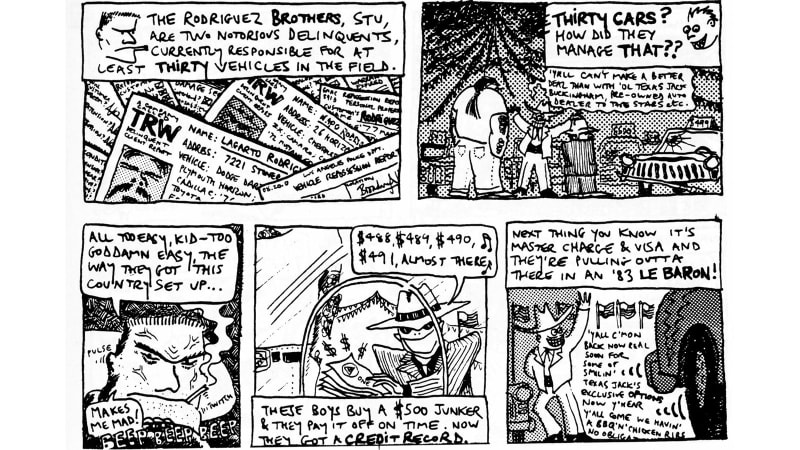
Computerized robots perform over 800 welds.
Lee himself featured in some LeBaron ads.
The evolution of fashion during the life of the Chrysler LeBaron through 1983.



